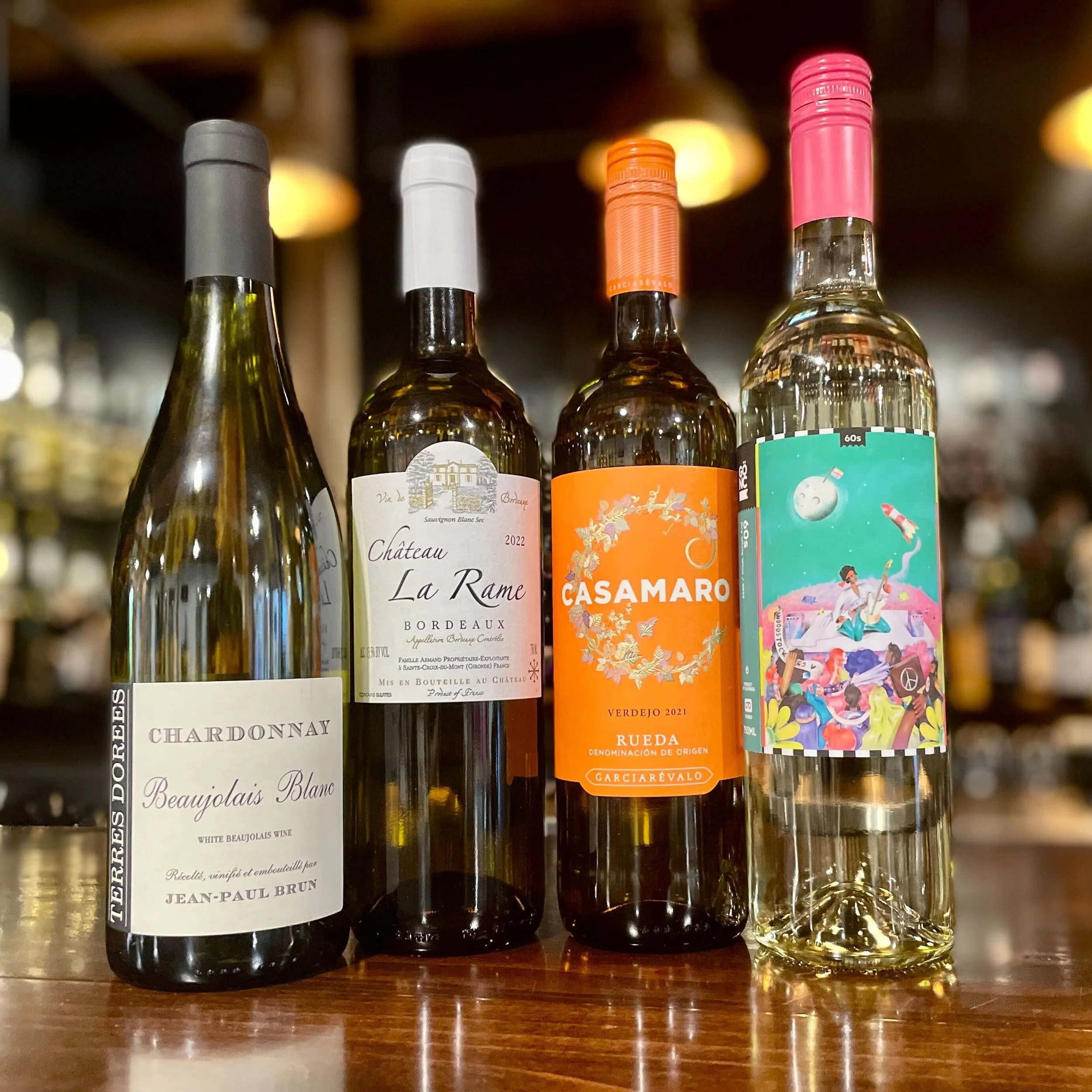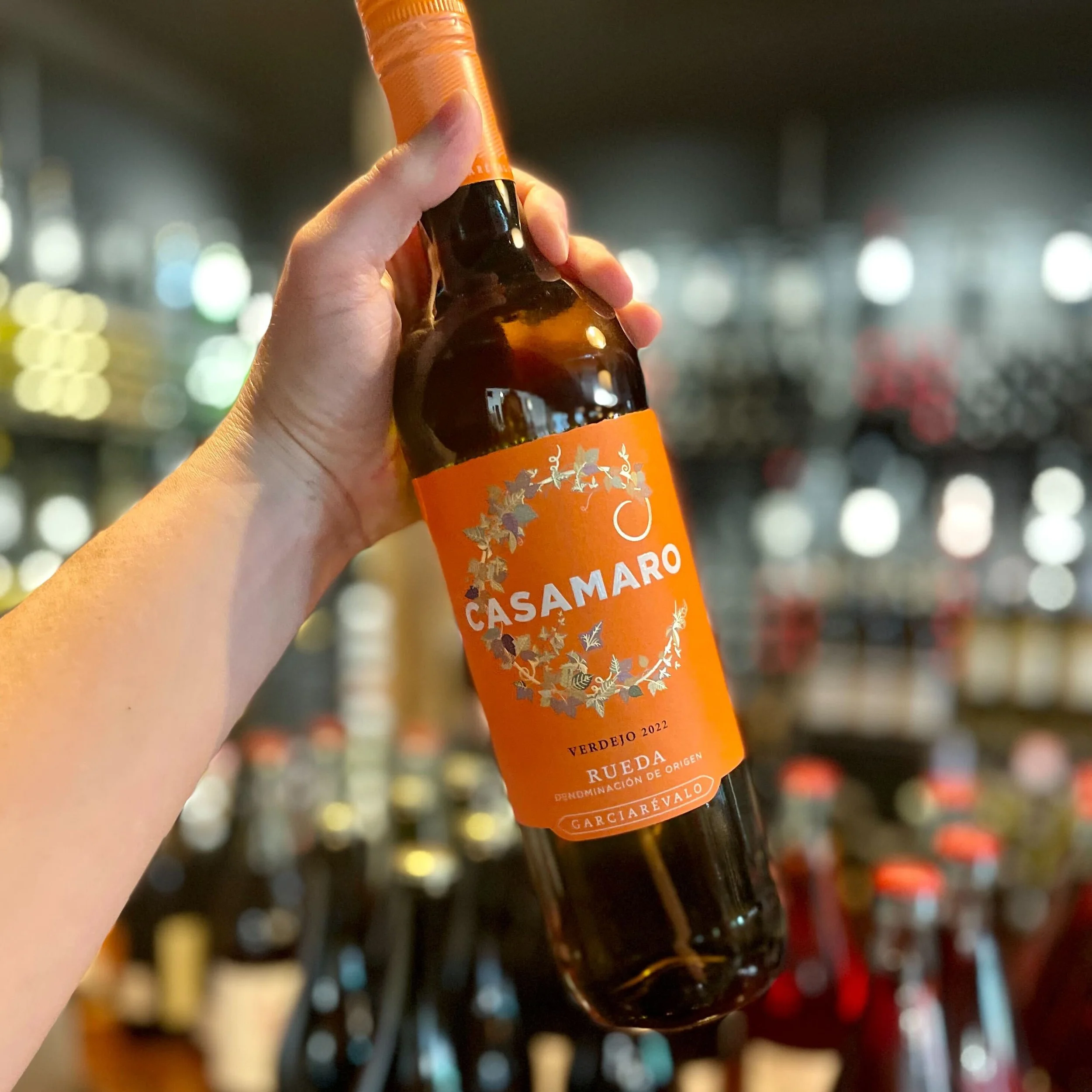Sun Kissed Whites
Spring has sprung and everything has been kissed by the sun : Including these beautiful white grapes! Come discover what spring tastes like as you explore 4 delicious wines from California, France, Slovenia and Germany!
Angelo Negro Bianco
Grapes: 100% Arneis
Place: Piedmont - Italy
Process: cryo-maceration for 8-10 hours followed by a native yeast fermentation. Aged in stainless steel for 4+ months on the lees with regular battonage. Unfined and Unfiltered.
Family: Since 1670, the Negro family has been cultivating vineyards in the hills of the Roero and realizing the viticultural potential of this relatively undiscovered subregion of Piedmont. In that same year, two of the estate’s most cherished vineyards—Perdaudin and Prachiosso—were first planted. Boasting some of the most desirable vineyard sites in the Roero, Negro in an indisputable legend of the area. In fact, Giovanni Negro, the estate’s proud patriarch, vinified the first dry Roero Arneis on record in 1971.
Bottle: $23 | Glass: $10
Chateau La Rame Blanc
Grapes: 95% Sauvignon Blanc 5% Semillon
Place: Bordeaux - France
Process: Trained in Guyot and Cordon de Royat and planted at 5,000 vines/ha. Vines destined for dry white Bordeaux average 20 years old. All other vines average 30-50 years old.Grapes are totally de-stemmed and ferment with indigenous yeasts in stainless-steel tanks. Cuvaison lasts 3-4 weeks. White wines see regular bâtonnage during élevage;
Family: Situated 40 kilometers southeast of Bordeaux, Château La Rame is among the oldest and most renowned properties in the Sainte Croix du Mont appellation. Situated on a hill overlooking the Garonne river, the estate has long been recognized as one of the prime sites in the region for viticulture, having received gold medals at exhibitions in Bordeaux in 1895 and in Paris in 1900. Once the property of the Baron de Vertheuil, Governor of the Île d’Oleron, the estate fell into the hands of Claude Armand, the father of the current owner, Yves Armand, at a time when the appellation had fallen out of favor. The Armand family has undertaken to re-establish Sainte Croix du Mont as an appellation of merit set to rival the great estates of Sauternes and Barsac. We have represented Château La Rame in the US market since the 1989 vintage. The 20 ha under vine at the estate are divided between Cabernet Sauvignon and Merlot to produce Bordeaux Rouge and Rosé and Sauvignon Blanc and Sémillon to produce dry white Bordeaux and the sweet Sainte Croix du Mont.
Bottle: $27 | Glass: $12
Charisse Picpoul
Grapes: 100% Picpoul
Place: Pinet - Languedoc - France
Process: The vines have an average age of 25 years. After a manual harvest, the grapes are fermented in temperature-controlled vats and left on the fine lees for six months prior to bottling.
Family: The Allies family has grown vines for several generations in Pomerols, along the
northern edge of the Bassin de Thau.
This large inland sea, on the southern part of the Pinet appellation, has a microclimate
significantly influenced by cooling sea breezes, which accounts for the particular
expression of freshness in these whites.
The soils are composed of clay and limestone.
Bottle: $21 | Glass: $9
Garciarévalo Casamaro
Grapes: 85% Verdejo, 15% Viura
Place: Rueda, Spain
Process: 100% free-run juice, fermented in stainless steel and bottled directly from the tanks.
Family: Garciarévalo is situated at the confluence of the rivers Adaja and Eresma, which produces an exceptional microclimate characterized by temperatures up to five degrees cooler than other surrounding areas. This zone also offers a big climatic difference between the day and the nighttime temperatures, which is key for retaining acidity. Far from the arid conditions one expects in Castilla y León, their elevation at 900m and location within a pine forest, between two rivers, provides an ideal microclimate for producing beautiful, fresh, native verdejo grapes.
The soil here is extremely sandy and low in organic material, allowing for excellent drainage and a greater difference between daytime and nighttime temperatures due to sand’s quick release of heat at night. These factors allow their wines to be ripe yet incredibly fresh, with exceptional acidity for the warm Rueda region. It has also aided them in their conversion to completely organic viticulture, for which they were certified in the 2020 vintage.
Bottle: $19 | Glass: $8





